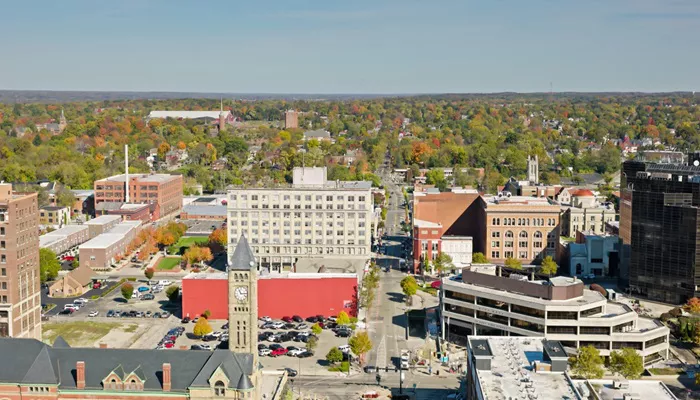On Monday, I watched with dismay as Ohio U.S. Senator J.D. Vance made false claims about Haitian immigrants in Springfield, Ohio. Vance not only misrepresented their status but also suggested harmful insinuations about them. It seemed like a deliberate attempt to exploit public fears and prejudices for political gain.
Ohio Attorney General Dave Yost followed up last week by using similar unfounded claims to justify legal actions aimed at limiting migrant arrivals in Ohio. This strategy of stoking fear and spreading misinformation is deeply troubling to me.
Springfield holds a special place in my heart. Three generations of my family have called this city home. My parents grew up there, and I’ve spent much of my life visiting. My grandfathers worked at International Harvester and as an insurance agent, while my grandmothers were involved in the local library and bank. My parents and two grandparents graduated from Wittenberg University. Springfield is filled with cherished memories for me, from local eateries to fishing spots and family gatherings.
In contrast, my partner’s parents are Haitian immigrants who moved to the U.S. as teenagers and have achieved great success. Their kindness and success have significantly impacted my life. I have a deep appreciation for Haitian culture, including its cuisine, language, and traditions. Despite the distance, my connection to the Haitian community is strong, and I am disturbed by how they are being misrepresented in Springfield.
The recent political discourse about Haitians in Springfield is frustrating. Both communities, Haitian and Springfield, are important to me, and the current political tactics are damaging to both.
Politicians like Vance who use misinformation to incite fear and hatred are engaging in a reckless and harmful practice. Vance’s claims that Haitians in Springfield are illegal immigrants are incorrect. They are, in fact, legal immigrants—some with work permits and others fully naturalized. The insinuations he has made are baseless and offensive.
Yost’s accusations that Haitians are “terrorizing” Springfield are also unfounded. I have not seen any evidence of chaos or disorder in Springfield during my visits.
Since the pandemic, Springfield has seen an influx of Haitian immigrants, with estimates ranging from 10,000 to 20,000. According to The New York Times, this community has contributed significantly to the city’s revitalization. Haitians are working in various local industries, paying taxes, and participating actively in community life. However, the rapid increase in population has strained local resources, including housing, schools, and healthcare.
Despite these challenges, the Haitian community is helping to drive Springfield’s economic growth. They have filled essential jobs and supported local businesses, contributing positively to the city’s development.
There are certainly difficulties associated with such a sudden population increase, but the situation should not be characterized as chaos or terror. Instead, there is an opportunity for Springfield and the Haitian community to thrive together. While the transition may be challenging, it is likely to be beneficial in the long run.
It’s crucial to approach these issues with thoughtful solutions rather than inflaming tensions with inflammatory rhetoric. Given the current climate, it is especially disappointing that some politicians are exacerbating the situation rather than fostering understanding and cooperation.
To the new Haitian residents in Springfield, I extend a warm welcome. And to my friends and family in Springfield, I encourage you to embrace and support the newcomers. In doing so, you will find some of the most wonderful and kind-hearted individuals.


